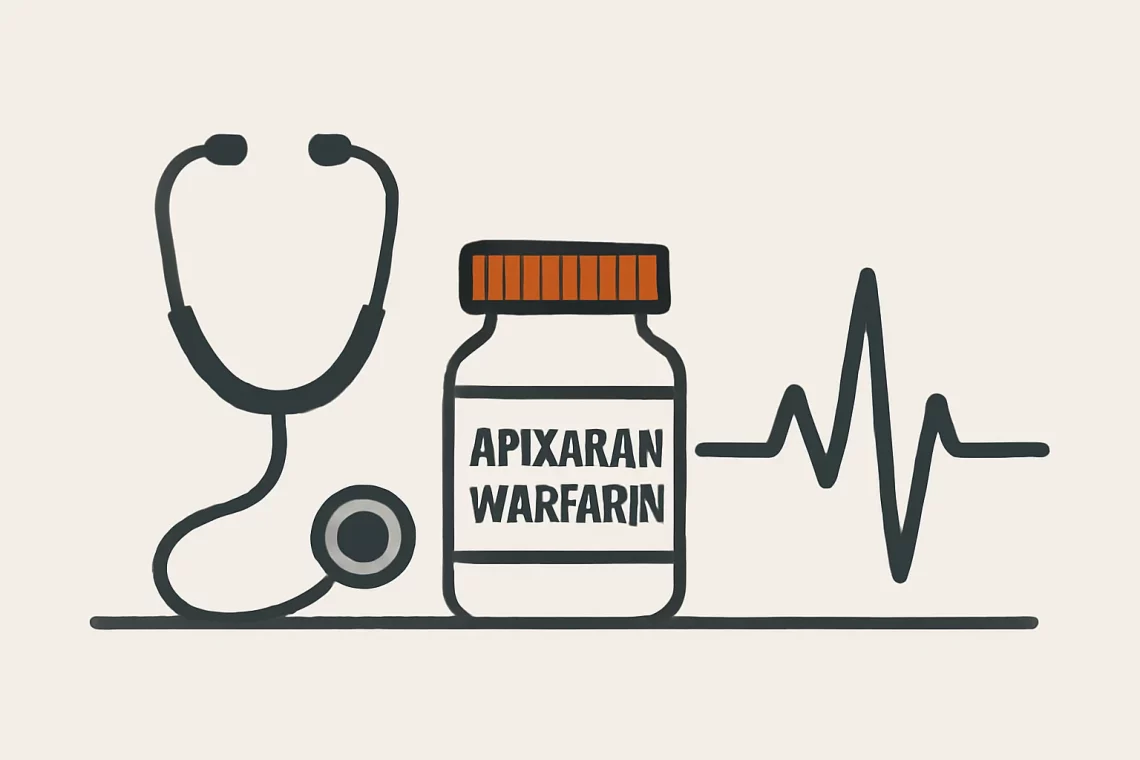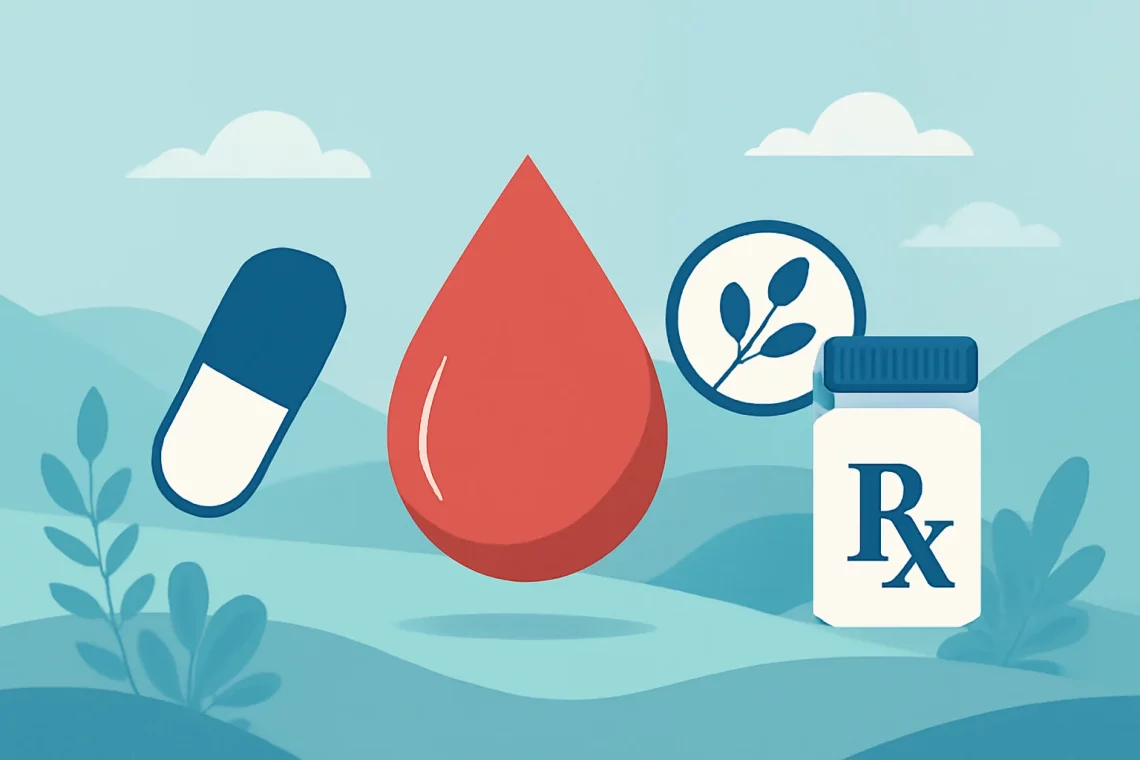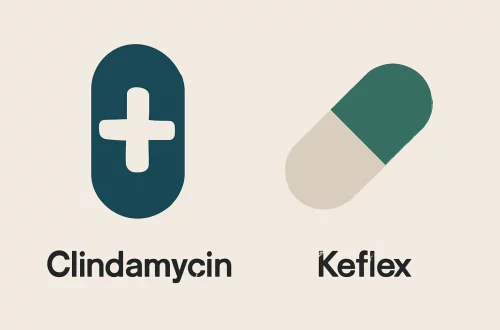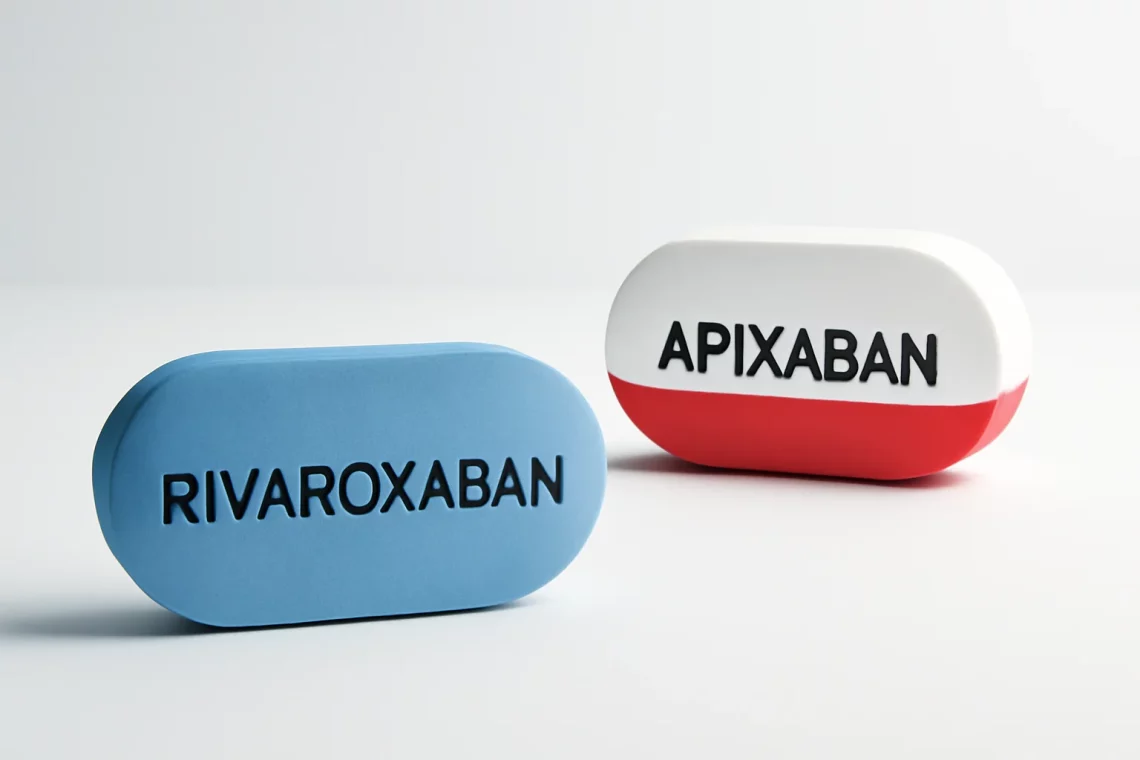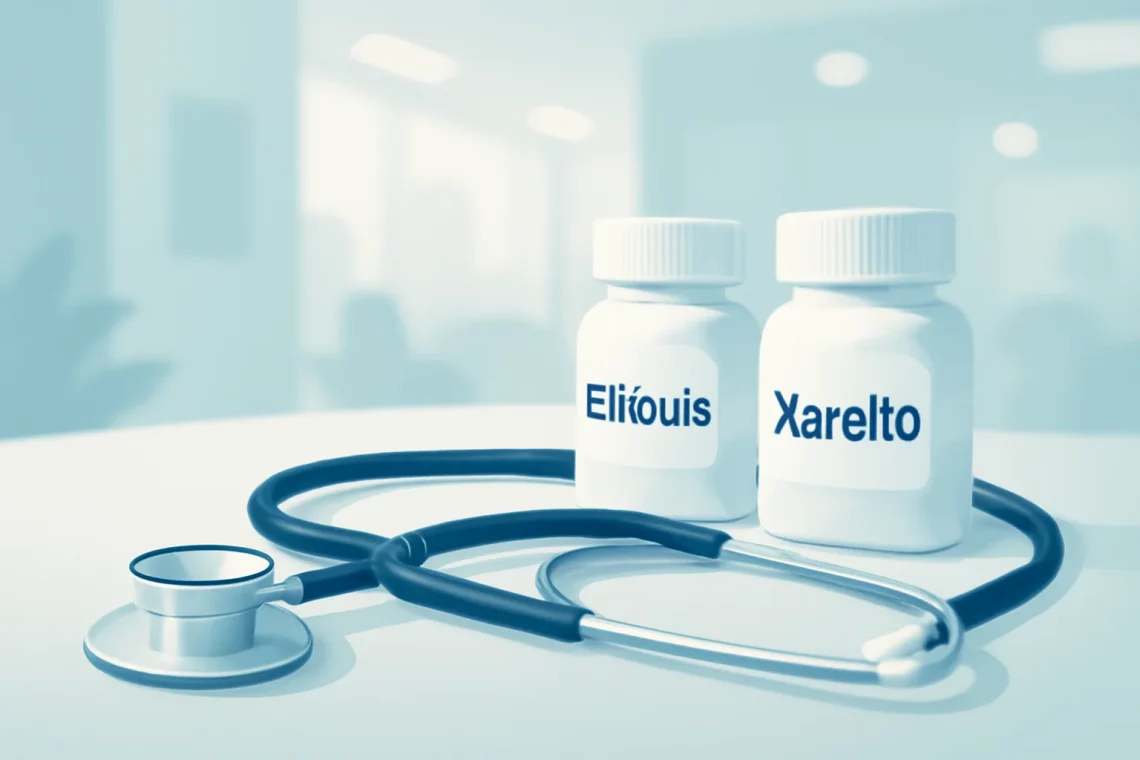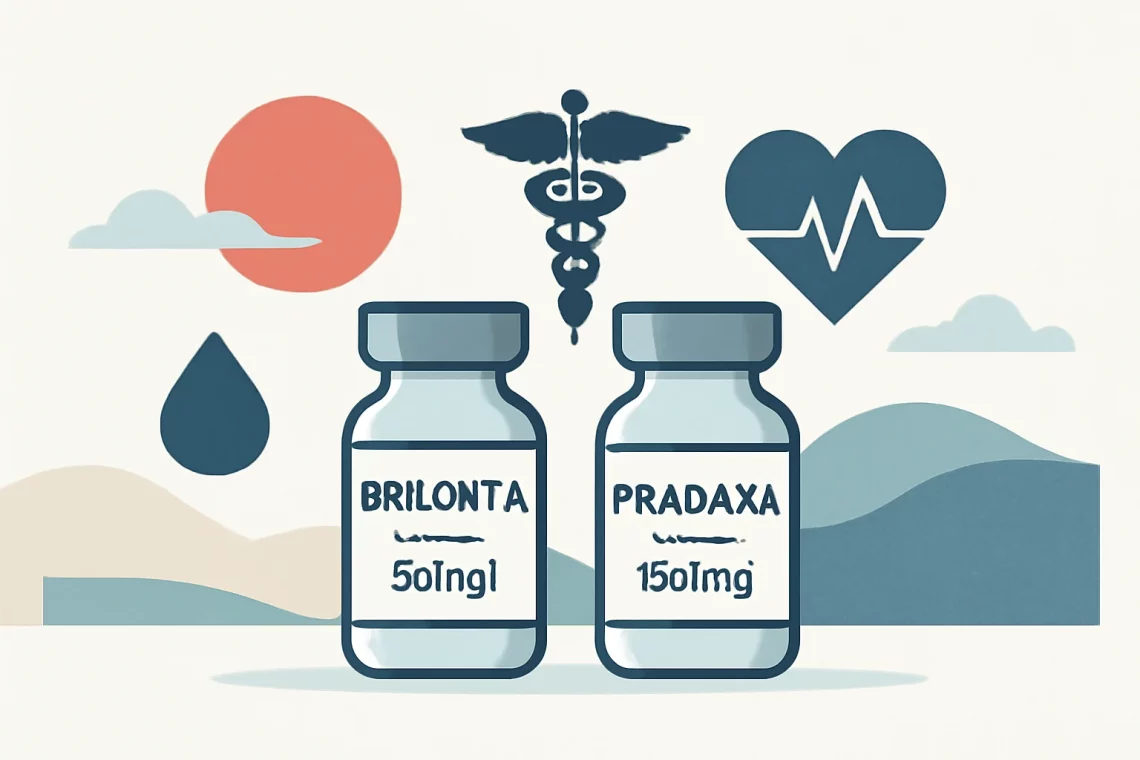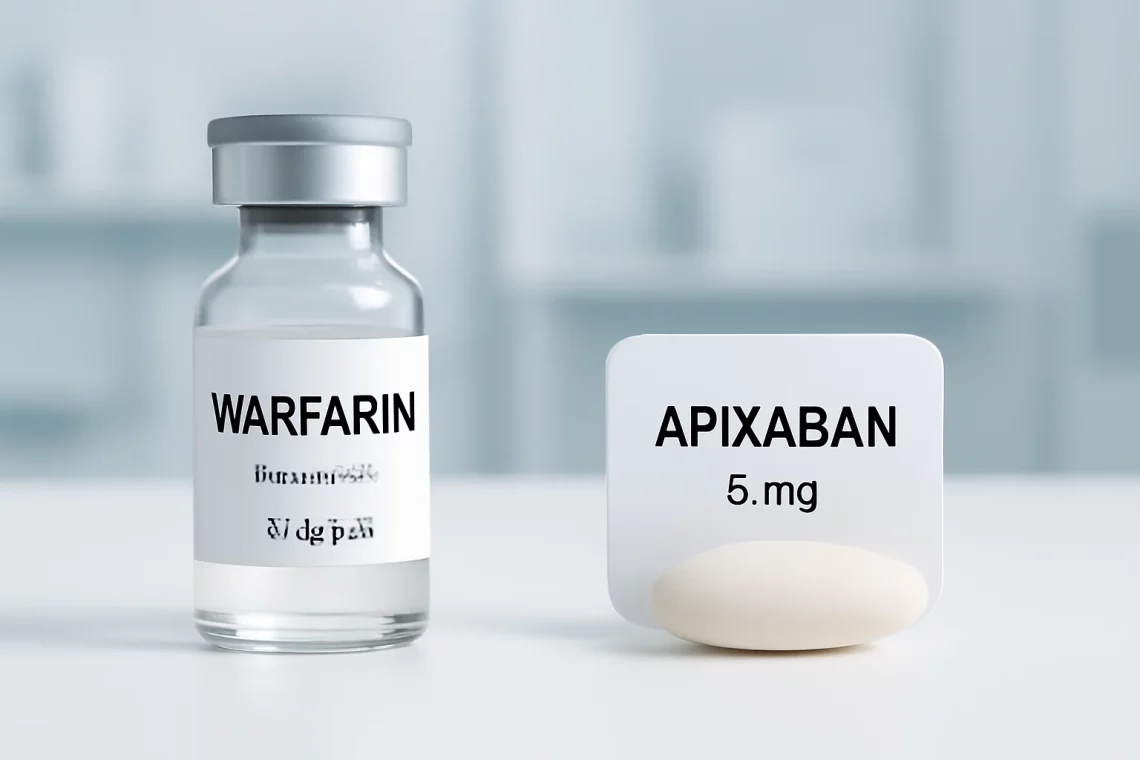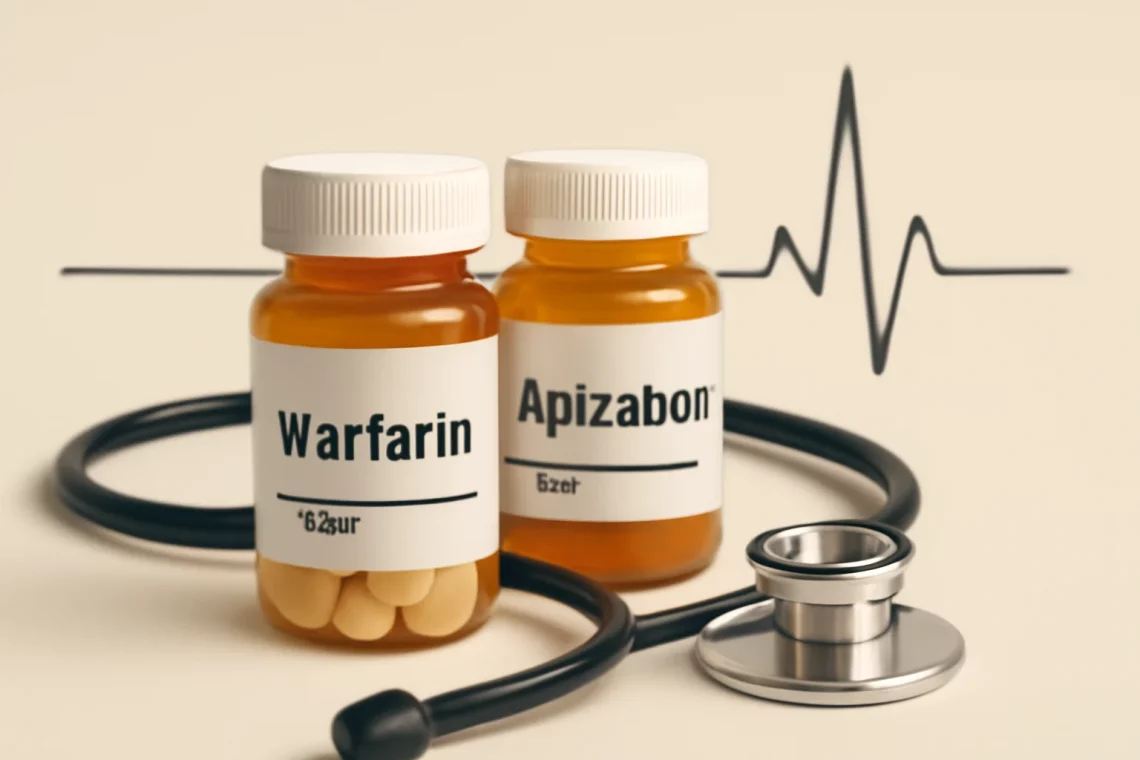-
Apixaban vs Warfarin: Choosing the Right Anticoagulant for You
Apixaban and warfarin are two anticoagulant medications commonly prescribed to prevent blood clots and reduce the risk of stroke in patients with certain medical conditions, such as atrial fibrillation and deep vein thrombosis. Both drugs serve the same primary purpose, yet they operate through different mechanisms and possess distinct characteristics that influence their use in clinical practice. Understanding the nuances between these two medications is essential for patients and healthcare professionals alike, as it can significantly impact treatment outcomes and overall patient safety. Anticoagulation therapy is pivotal in managing conditions associated with thromboembolic events. As healthcare continues to evolve, the choice between apixaban and warfarin has become a topic of…
-
Rivaroxaban vs Apixaban: Choosing the Right Anticoagulant for You
Rivaroxaban and apixaban are two widely used anticoagulant medications that play a crucial role in the management of thromboembolic disorders. As blood thinners, they help prevent the formation of harmful blood clots that can lead to serious conditions such as stroke, deep vein thrombosis, and pulmonary embolism. The increasing prevalence of cardiovascular diseases, along with the aging population, has led to a greater demand for effective anticoagulant therapies. Both medications belong to a class of drugs known as direct oral anticoagulants (DOACs), which have gained popularity due to their favorable safety profiles and ease of use compared to traditional anticoagulants like warfarin. Patients often face the dilemma of choosing between…
-
Rivaroxaban vs Apixaban: Choosing the Right Anticoagulant for You
When considering anticoagulants for the prevention and treatment of thromboembolic diseases, Rivaroxaban and Apixaban stand out as two of the most discussed options. Both medications belong to a class known as direct oral anticoagulants (DOACs), which have revolutionized the management of various conditions such as atrial fibrillation, deep vein thrombosis (DVT), and pulmonary embolism (PE). These medications work by inhibiting specific factors in the blood coagulation pathway, ultimately reducing the risk of blood clots. The choice between Rivaroxaban and Apixaban often depends on multiple factors, including patient-specific characteristics, underlying health conditions, and potential drug interactions. Both drugs offer distinct advantages and disadvantages that can impact their effectiveness and safety profiles.…
-
Eliquis vs Xarelto Which Anticoagulant is Right for You
Anticoagulants play a crucial role in modern medicine, especially for patients at risk of developing blood clots. Two of the most commonly prescribed anticoagulants are Eliquis (apixaban) and Xarelto (rivaroxaban). Both medications belong to a class of drugs known as direct oral anticoagulants (DOACs) and are used to reduce the risk of stroke and blood clots in patients with conditions such as atrial fibrillation or venous thromboembolism. The choice between Eliquis and Xarelto can be a significant decision for both patients and healthcare providers. Factors such as efficacy, safety profiles, dosing regimens, and potential drug interactions must be considered. Each medication has its unique characteristics that can influence treatment decisions…
-
Xarelto vs Pradaxa: Which Anticoagulant Is Right for You?
Xarelto and Pradaxa are two popular anticoagulant medications that have transformed the management of various cardiovascular conditions. These drugs are primarily used to prevent and treat blood clots, thereby reducing the risk of serious complications such as stroke and heart attack. With the increasing prevalence of conditions like atrial fibrillation and venous thromboembolism, understanding the differences and similarities between Xarelto and Pradaxa has become essential for both patients and healthcare providers. Patients often find themselves at a crossroads when choosing between these two medications. Both have distinct mechanisms of action, dosing regimens, and side effect profiles that can influence treatment decisions. Additionally, factors such as lifestyle, medical history, and potential…
-
Xarelto vs Pradaxa: Which Anticoagulant is Right for You?
Xarelto and Pradaxa are both well-known anticoagulants that serve a vital role in the management of various cardiovascular conditions. These medications help to prevent blood clots, which can lead to serious health issues such as strokes and heart attacks. The importance of anticoagulants in modern medicine cannot be overstated, as they are crucial for patients with conditions like atrial fibrillation, deep vein thrombosis (DVT), and pulmonary embolism. While both Xarelto and Pradaxa belong to the category of direct oral anticoagulants (DOACs), they have different mechanisms of action, dosing regimens, and side effect profiles. Patients often find themselves in a dilemma when it comes to choosing between these two medications. The…
-
Brilinta vs Pradaxa: A Comprehensive Comparison of Anticoagulants
Brilinta and Pradaxa are two widely used medications that play crucial roles in managing different cardiovascular conditions. With the increasing prevalence of heart diseases, the need for effective treatments is more significant than ever. Both Brilinta (ticagrelor) and Pradaxa (dabigatran) offer unique mechanisms of action and indications, making them valuable options in clinical practice. Brilinta is primarily an antiplatelet agent, utilized to prevent blood clots in patients with acute coronary syndrome or those who have had a heart attack. Its ability to inhibit platelet aggregation helps reduce the risk of subsequent cardiovascular events. On the other hand, Pradaxa is an anticoagulant that works by directly inhibiting thrombin, a key enzyme…
-
Warfarin or Apixaban: Choosing the Right Anticoagulant for You
The choice between Warfarin and Apixaban has become increasingly relevant in discussions surrounding anticoagulant therapy. As the prevalence of conditions such as atrial fibrillation and venous thromboembolism rises, understanding the nuances of these two medications is essential for both healthcare providers and patients. Anticoagulants play a crucial role in preventing blood clots, which can lead to serious health complications, including stroke and pulmonary embolism. Warfarin, a traditional anticoagulant, has been used for decades and is known for its effectiveness, but it comes with certain dietary restrictions and requires regular monitoring of blood levels. In contrast, Apixaban is a newer medication that falls into the category of direct oral anticoagulants (DOACs).…
-
Warfarin vs Apixaban: Which Anticoagulant Is Right for You?
Warfarin and Apixaban are two commonly used anticoagulants that have transformed the management of thromboembolic disorders. These medications play a crucial role in preventing blood clots, which can lead to serious complications such as stroke and deep vein thrombosis. The choice between Warfarin and Apixaban often depends on various factors, including the specific medical condition being treated, patient preferences, and the physician’s assessment. Anticoagulants are pivotal in modern medicine, but the decisions surrounding their use can be complex. Patients may experience anxiety about the risks and benefits associated with these drugs, given their potential side effects and the need for regular monitoring, particularly with Warfarin. Understanding how these medications work,…
